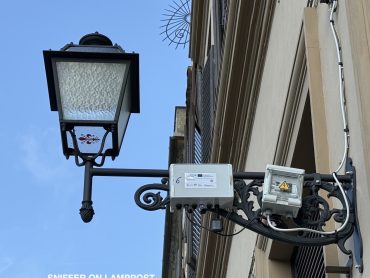
New CHARTER Alliance report explores what makes cultural heritage curricula innovative and/or emerging
The European Cultural Heritage Skills Alliance CHARTER, Erasmus+ funded project, presents its second report on the field of education: “Benchmarking analysis of innovative/emerging curricula” by Work Package 3 (WP3) – Vocational Education and Training and beyond.
The report has two main objectives. First, highlighting curricula that can lead to innovative professions and/or have been established in emerging contexts, analysing them according to CHARTER’s six cultural heritage functions. Second, the report aims to explore what makes curricula innovative and/or emerging, attempting to identify those elements which constitute innovation in cultural heritage education and/or which can be used to describe curricula in emerging cultural heritage contexts. These elements are expressed in the report as indicators, which will set the groundwork for the WP to produce the guidelines for innovative/emerging vocational education and training (VET) and higher education (HE) and continuing education and training (CET).
The report is the result of conducting an internal survey among CHARTER consortium members and literature review on papers that contribute to the study of innovative or emerging curricula for the CH sector, including sources such as Voices of Culture (VoC) report, publications by the UK innovation agency NESTA, and from relevant OECD, UNESCO and EU publications linked to the creative industries.
In order to provide an objective benchmarking, a series of formal indicators were selected, including the education sector, types of education and training, format, length, credits, NQF/EQF levels, etc. But to fully grasp which are the elements that define and shape an innovative or emerging curricula, a set of three clusters of qualitative indicators were designed:
- General innovation/emergence-related indicators, including relevance for society/market, novelty and accessibility/awareness.
- Structural elements, such as the delivery format, work-based learning opportunities and collaborative elements.
- Content elements, evaluating trans-interdisciplinarity, heritage core/transversal skills, sustainability, digitisation, etc.
The processing of data and detailed analysis of all these indicators result in a series of specific findings you can learn more by accessing the full report.
- Learn more about CHARTER Alliance: https://charter-alliance.eu/
- Subscribe to the newsletter: http://bit.ly/CHARTER-newsletter
About CHARTER
CHARTER, the European Cultural Heritage Skills Alliance, brings together and represents the whole range of the cultural heritage sector in Europe. The 47 project partners strive towards making apparent the value of cultural heritage and creating a resilient and responsive sector.
CHARTER works towards creating a lasting, comprehensive strategy that will guarantee Europe has the necessary cultural heritage skills to support sustainable societies and economies.The Erasmus+ funded project maps the current and future needs of the sector to bridge the gap of skills shortages and mismatches between the educational and occupational fields.




